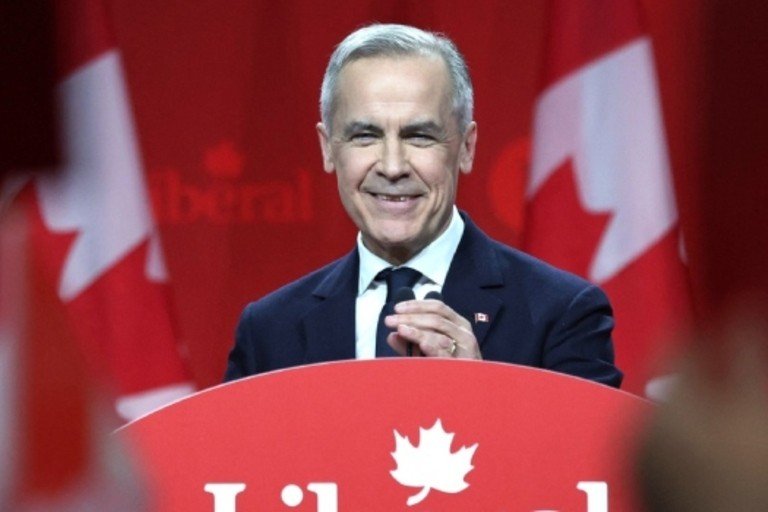Prime Minister Mark Carney pledged on Tuesday to defeat the United States in Donald Trump’s escalating trade war, after leading the Liberal Party to a remarkable electoral comeback and securing another term in office.
Following a campaign dominated by Trump’s tariffs and annexation threats, Carney promised to forge “a new path forward” in a world “fundamentally changed” by a United States now openly hostile to free trade.
“We are past the shock of America’s betrayal, but we must never forget its lessons,” said Carney, the former governor of both the Bank of Canada and the Bank of England, who entered politics earlier this year.
“We will win this trade war and build the strongest economy in the G7,” he declared.
The Liberals secured control of Parliament but may fall just shy of a majority, necessitating cooperation with smaller parties. Still, the result marks a dramatic turnaround for a party that, only months ago, faced the prospect of electoral collapse.
The Conservative Party, led by Pierre Poilievre, had appeared poised for victory. But Trump’s aggressive rhetoric and the departure of unpopular former prime minister Justin Trudeau reshaped the political landscape.

Carney, who replaced Trudeau only weeks before the election, persuaded voters that his economic expertise made him uniquely qualified to stand up to Trump.
While Poilievre failed to claim the premiership, his Conservatives are set to form a formidable opposition. He conceded defeat on Tuesday and pledged to work with the Liberals to safeguard Canadian interests.
“We will always put Canada first,” Poilievre told supporters in Ottawa. “Conservatives will work with the prime minister and all parties to achieve a new trade agreement—one that lifts tariffs and defends our sovereignty.”
“We Are Canada”: Liberal Supporters Celebrate
Celebrations erupted at the Liberal election night venue in Ottawa, where supporters greeted the result with cheers.
“I’m happy we’ve got someone who can speak to Mr Trump on his level,” said 72-year-old Dorothy Goubault. “Mr Trump is a businessperson. Mr Carney is a businessperson. I think they can relate.”
Before Trudeau’s resignation, Trump had ridiculed the Canadian leader, referring to him as a “governor” and urging Canada to become the 51st US state.
Goubault, however, said those days are over. “It’s not ‘the governor’ anymore—it’s the Prime Minister of Canada. And it’s not the 51st state. It’s ‘We are Canada!’”
Liberal cabinet minister Steven Guilbeault credited Trump’s antagonism with energising voters.
“President Trump’s repeated attacks on our economy, our sovereignty, and our very identity have mobilised Canadians,” Guilbeault told CBC. “They saw in Prime Minister Carney someone with international credibility and economic leadership.”
Carney’s credentials include leading the Bank of Canada through the 2008 financial crisis and the Bank of England during the Brexit referendum fallout.
Trudeau’s Exit Key to Liberal Resurgence
Trudeau’s departure proved pivotal to the Liberal resurgence, ending one of the most turbulent chapters in Canadian political history.
On 6 January, when Trudeau announced his resignation, the Conservatives led the Liberals by over 20 points in most polls, with voters reeling from rising living costs after Trudeau’s decade in power.
Carney distanced himself from Trudeau during the campaign, criticising the former leader’s failure to prioritise economic growth. He also scrapped Trudeau’s controversial carbon tax, which had sparked widespread voter discontent.
For Poilievre, a 45-year-old MP with two decades in Parliament, the outcome marks a crushing blow. He was faulted for his cautious criticism of Trump, insisting on focusing instead on domestic issues.
His attempts to portray Carney as a continuation of failed Liberal policies ultimately failed to sway the electorate.
At the Conservative watch party in Ottawa, supporter Jason Piché expressed disbelief at the outcome. “I was hoping to have a big celebration tonight,” he told AFP.










